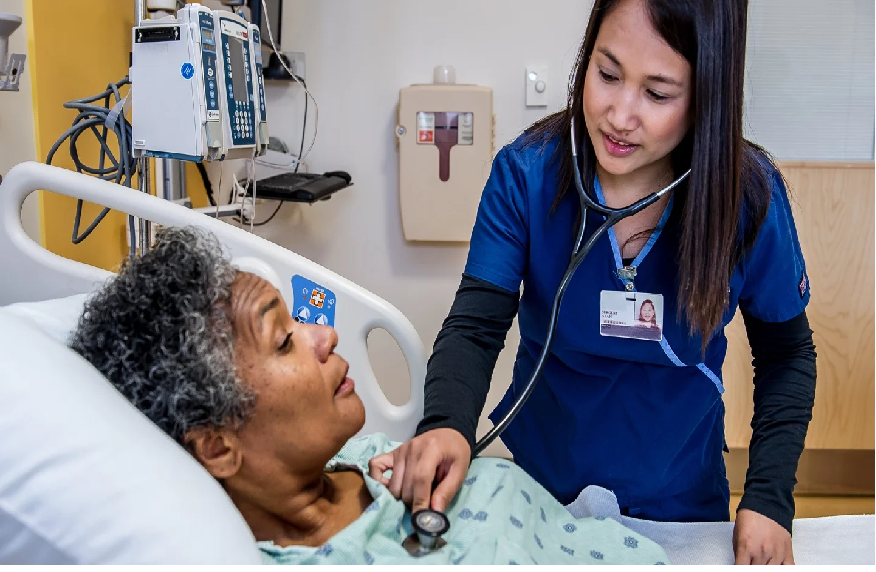How do you Analyse the nursing care for the frail elderly in emergency services?

In recent years, care for frail elderly patients in emergency services has evolved exponentially. The increase in the ageing of the population and the shortage of Nursing professionals in this field have been critical elements in this development. Therefore, it is necessary to establish the adequacy of Nursing care for the frail elderly in the area of hospital emergencies.
This research study focuses on the care for the frail elderly, specifically on the role of nursing professionals in the approach to Nursing care in hospital emergencies, analysing the characteristics of the care provided and how it affects these patients.
This situation prompts us to study in depth the work of the nursing profession in the care of the frail elderly in the Emergency Department to contribute to the contribution of nursing research in this area, and this is one of the main reasons for carrying out a study reviewing the published literature on the subject.
Objectives
The main objective is to analyse the adequacy of Nursing care for the frail elderly in the field of hospital emergencies, in addition to describing nursing care for the unstable patient in the emergency services, to study the feasibility of establishing Nursing care for the frail patient in the emergency room.
Material and methods
The study carried out in this research work corresponds to a narrative review based on the search and analysis of existing scientific knowledge. To carry out this review, a narrative approach has been used to minimise bias and allow replication of the study to those researchers who are interested in the subject. Scientific evidence has been used through the different databases where the searches are conducted.
Databases. Search strategy. Number of selected items
In the search strategy used to locate the different articles that make up this study, four scientific papers have been found, of which two belong to the Scopus database and the other two come from the Dialnet databases and Scielo.
Development of the revision
Hospital Emergency Services are considered the main access route to 3rd level care and are the most crucial interface between the community and the hospital. Epidemiological data suggest that older people use hospital emergency services much more frequently than expected, with 50-60% of patients seen in observation areas being over 64 years of age. That is why care for the elderly population in emergency services is a matter of vital importance.
Assessment methods for the frail elderly in the Emergency Department
Frailty screening for all patients over 65 years of age
Frailty screening scales are designed to detect early elderly patients likely to present some adverse event after discharge from a hospital emergency service. Therefore, applying these scales by Nursing must be mandatory for older adults over 65.
Comprehensive geriatric assessment adapted by Nursing
The geriatric assessment is an evaluation carried out by an interdisciplinary team whose purpose is to identify all the clinical, functional, mental and social problems to establish a care plan to improve the quality of life of the elderly. Geriatric patients. These peculiar characteristics, related to the progressive ageing of the elderly population in hospitals, make it necessary to plan geriatric assessment and intervention strategies from the beginning of admission to hospital emergency units.
We must remember that the global geriatric assessment (GGA) of the elderly patient is a complex process, which must be structured and approached from a comprehensive approach. The emergency teams usually encounter certain limitations, such as the scarcity of means, the lack of time, critical health processes, situations of agitation or patient confusion. That is why developing specific geriatric assessment tools for out-of-hospital emergencies is recommended.
Regarding the use of geriatric assessment in emergency services, a straightforward utility has not been demonstrated, and it is doubted whether it is the most appropriate level of care. Recently, there have been no apparent benefits of performing a comprehensive geriatric assessment in patients discharged from the Emergency Department or Acute Units regarding mortality or readmission. This fact is due to all the difficulties mentioned above. In the emergency setting, brief, simple, and validated tools must be applied to help us diagnose the frail elderly and detect problems in the different spheres.
The geriatric assessment is an effective tool in the emergency room when diagnosing the frail elderly and identifying problems. Still, it should not apply to any elderly in hospital emergencies, but only to patients previously defined as elderly high risk. In this sense, the Brief Risk Identification for Geriatric Health Tool (BRIGHT) scale stands out, with 11 questions, which have been shown to identify the elderly at risk of functional deterioration in the Emergency Department to select those candidates for a comprehensive geriatric assessment.
Having this information brings us very close to the previous reality of the patient, which helps us in the therapeutic attitude to be followed and in the decision of which level of care to refer the patient to from the emergency department.
Also noteworthy is heart failure, which is shown to be one of the most frequent problems in people over 65 years of age. It should be noted that aspects such as depression, delirium, malnutrition, socioeconomic conditions, falls, dehydration, mistreatment, and previous functional status are the geriatric conditions that present the most significant number of erroneous diagnoses, in addition to being predictive conditions of prolonged hospital stays, readmissions and mortality. On the other hand, falls are a basic form of atypical presentation of illness in the elderly; in addition, there are several factors related to the fall that can be detected from the emergency room, something to take into account.
All these aspects make the care of the frail elderly in the Emergency Department a complex process susceptible to presenting aspects valued positively and negatively.






